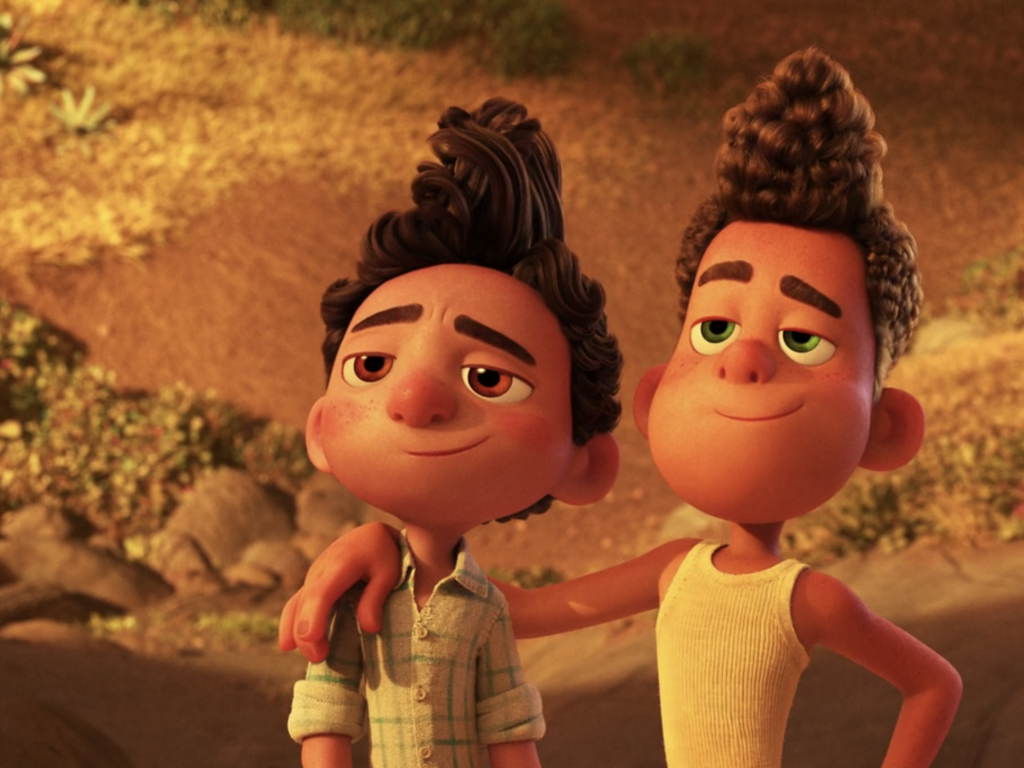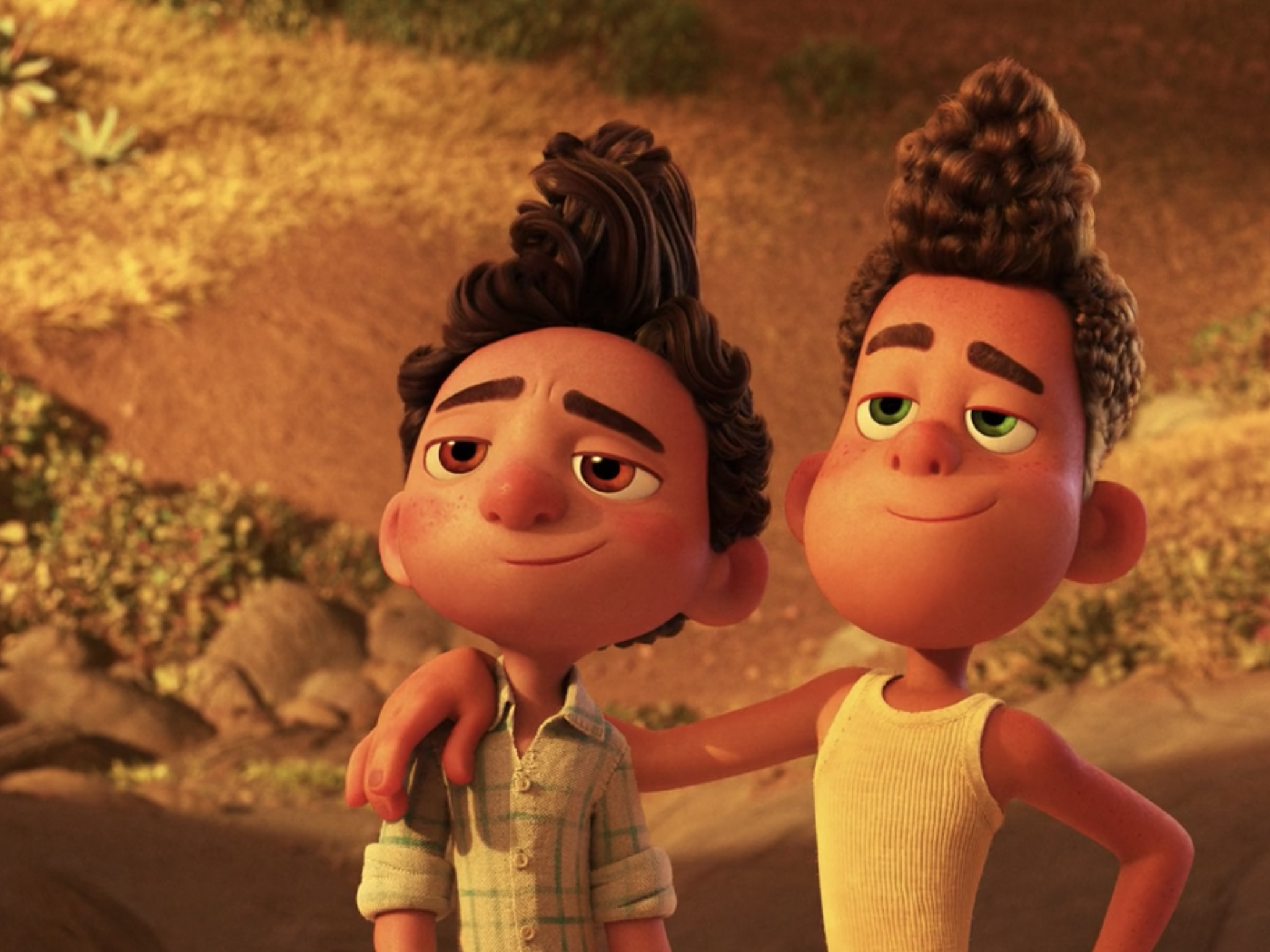
Walt Disney Studios Motion Pictures
- "Luca" follows two boys who are sea monsters, trying to navigate a town that hates sea monsters.
- "Luca's" director said its about friendships, but many viewers feel there is a strong gay subtext.
- While the sea monster allegory will speak to queer people, it's a missed opportunity for Disney.
- Visit Insider's homepage for more stories.
Pixar's charming new movie "Luca" breezes its way through gorgeous animation and a quaint story paired with a quietly powerful message – one of acceptance that speaks to a lot of queer people.
While the implications of queerness are there, particularly in the friendship between Luca and Alberto, it's disappointing that Disney's Pixar wasn't brave enough to fully commit to their first queer animated tale.
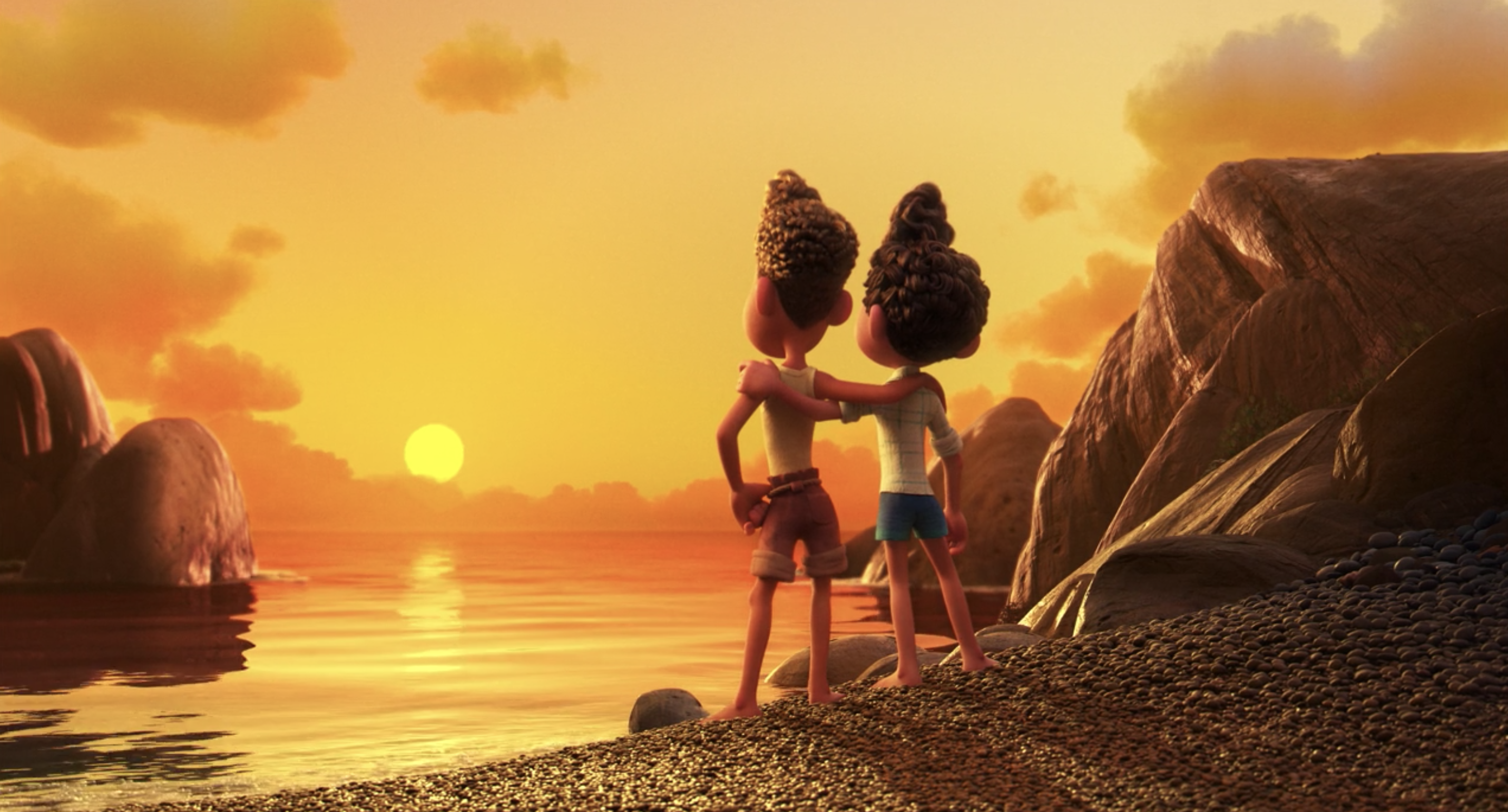
Walt Disney Studios Motion Pictures
Alberto and Luca's relationship is laced with gay-subtext
Luca is immediately taken by the free-spirited Alberto when he meets a fellow sea-monster off the coast of Portorosso.
They're casually physical with one another, sleeping side by side under a star-filled sky, wrapping their arms around each other's waists, and watching the sunset together. In fact, they spend a lot of the film embracing one another – teasing that their relationship could blossom into something more.
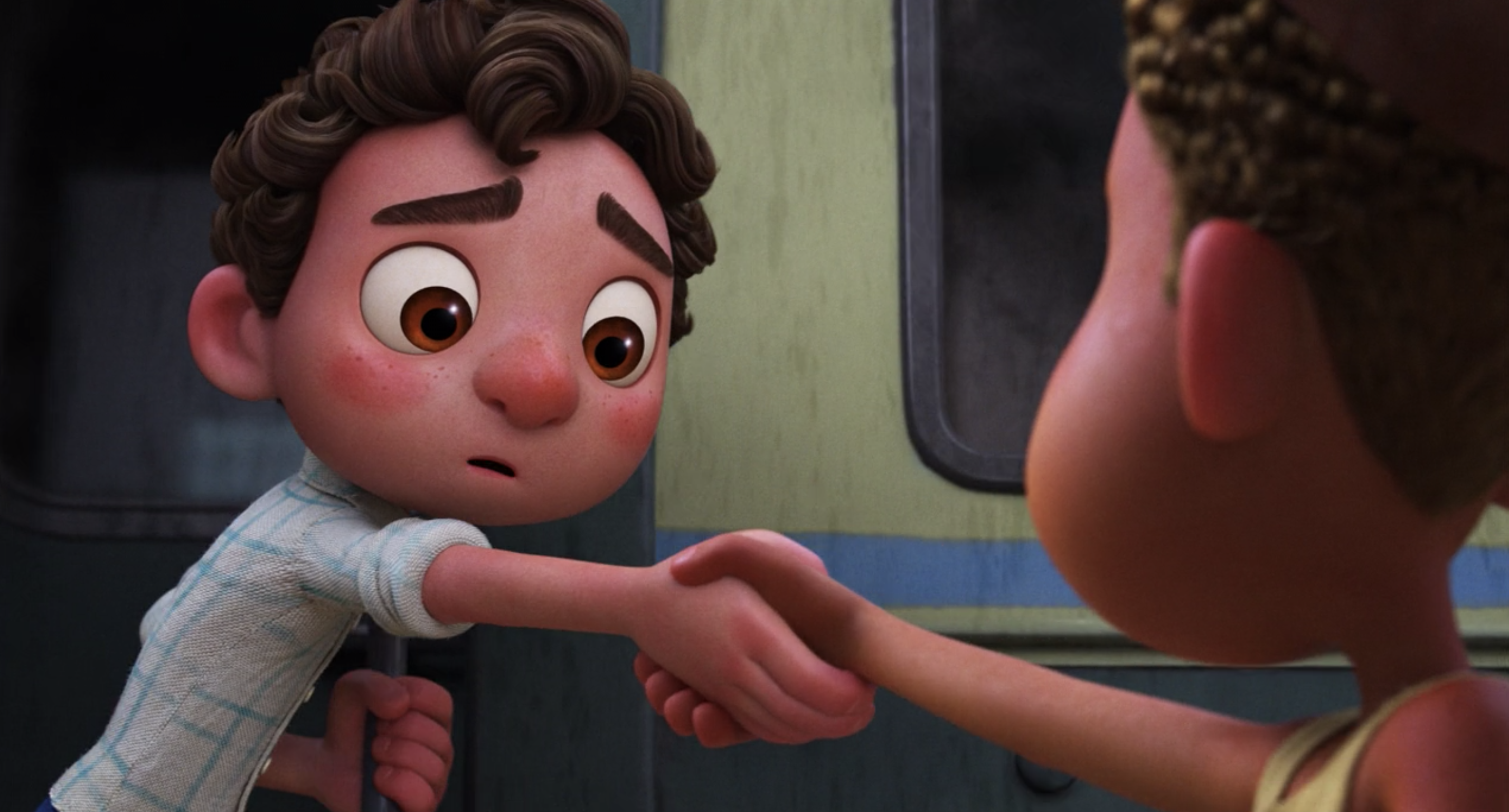
Walt Disney Studios Motion Pictures
Their relationship matures further during the ending scene when Alberto chooses to stay behind in Portorosso while Luca gets on a train to leave for school. Their touching farewell handshake lingered a bit.
"You got me off the island, Luca," Alberto says, suggesting that he might be talking about feeling alone. Even in their animated eyes, you can see the heartbreak. It's beautiful, tear-inducing stuff.
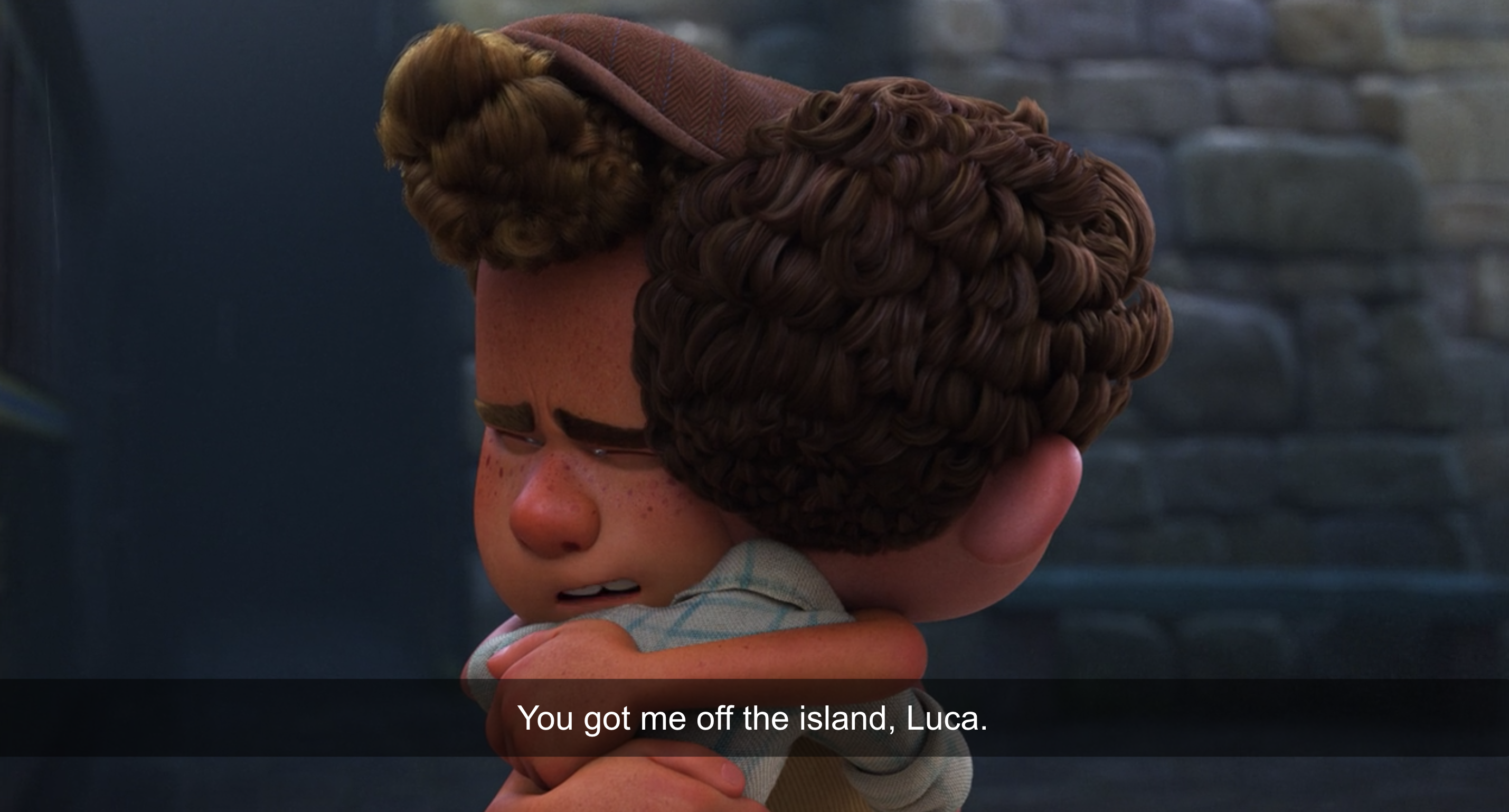
Walt Disney Studios Motion Pictures
Alberto chases after Luca's train, and it becomes clear, to this writer at least, that the movie is about that dreamy, youthful first love.
The comparisons to "Call Me By Your Name," a film where two young men fall in love, are well earned: the Italian sea-side setting, the hazy beauty of the summer scenery, and the tale of two boys experiencing love for the first time.
Yet, despite achingly obvious similarities, "Luca's" director shut down these comparisons.
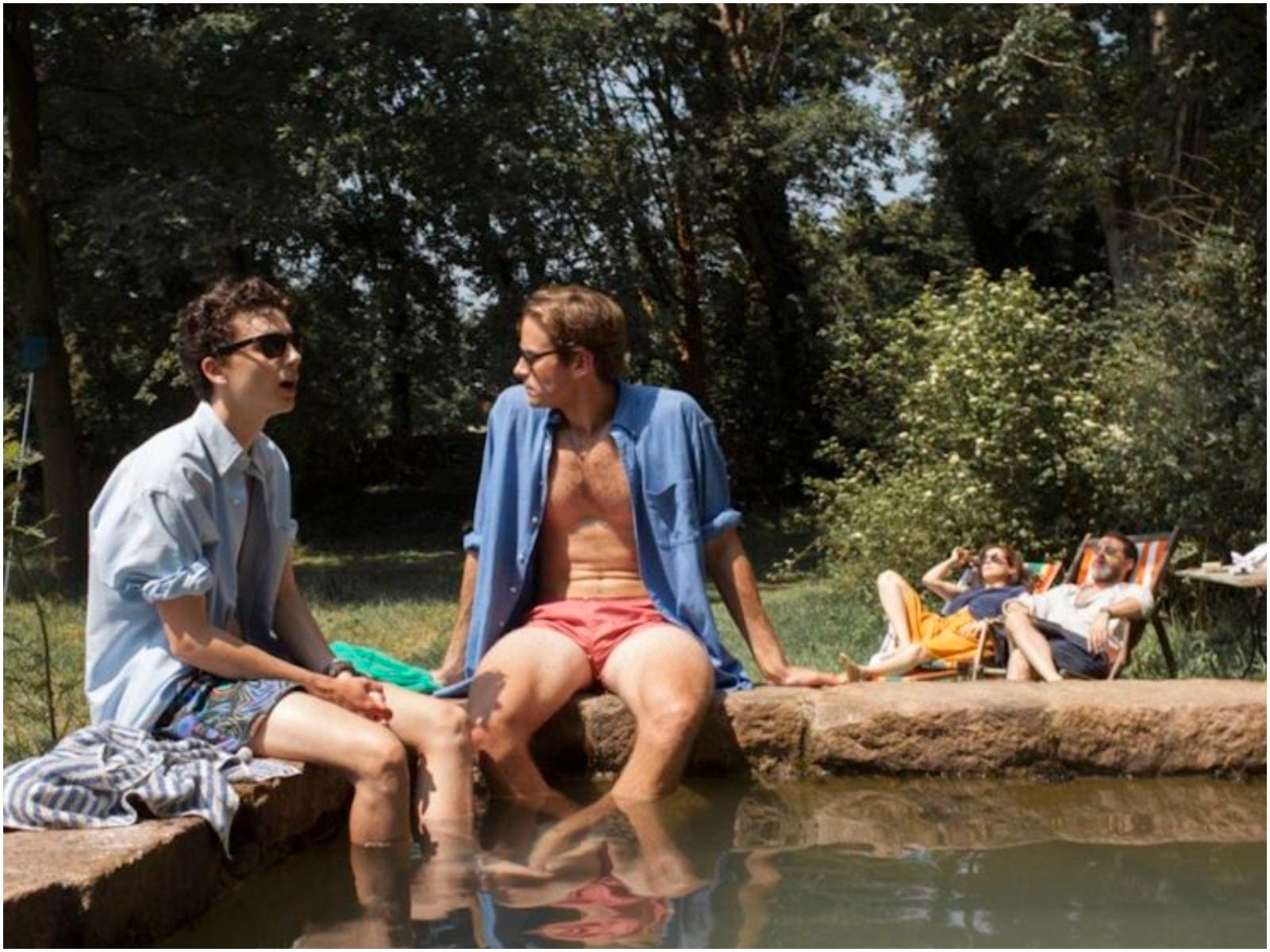
Sony Pictures Classics/Warner Bros. Pictures/Memento Films International
The director said 'Luca' is about platonic friendships, continuing Disney's trend of not fully embracing queer stories
Enrico Casarosa told Yahoo Entertainment that "it truly goes without saying that we really willfully went for a pre-pubescent story. This is all about platonic friendships."
This may seem refreshing to some, to see a Disney movie explore friendships as opposed to a fairy-tale love story, but its a shame that this decision has come when a gay romance could've so easily and naturally be explored.
Making Luca and Alberto explicitly gay or queer wouldn't have felt contrived. It would've been a meaningful confirmation of what is already a story rich in gay subtext.
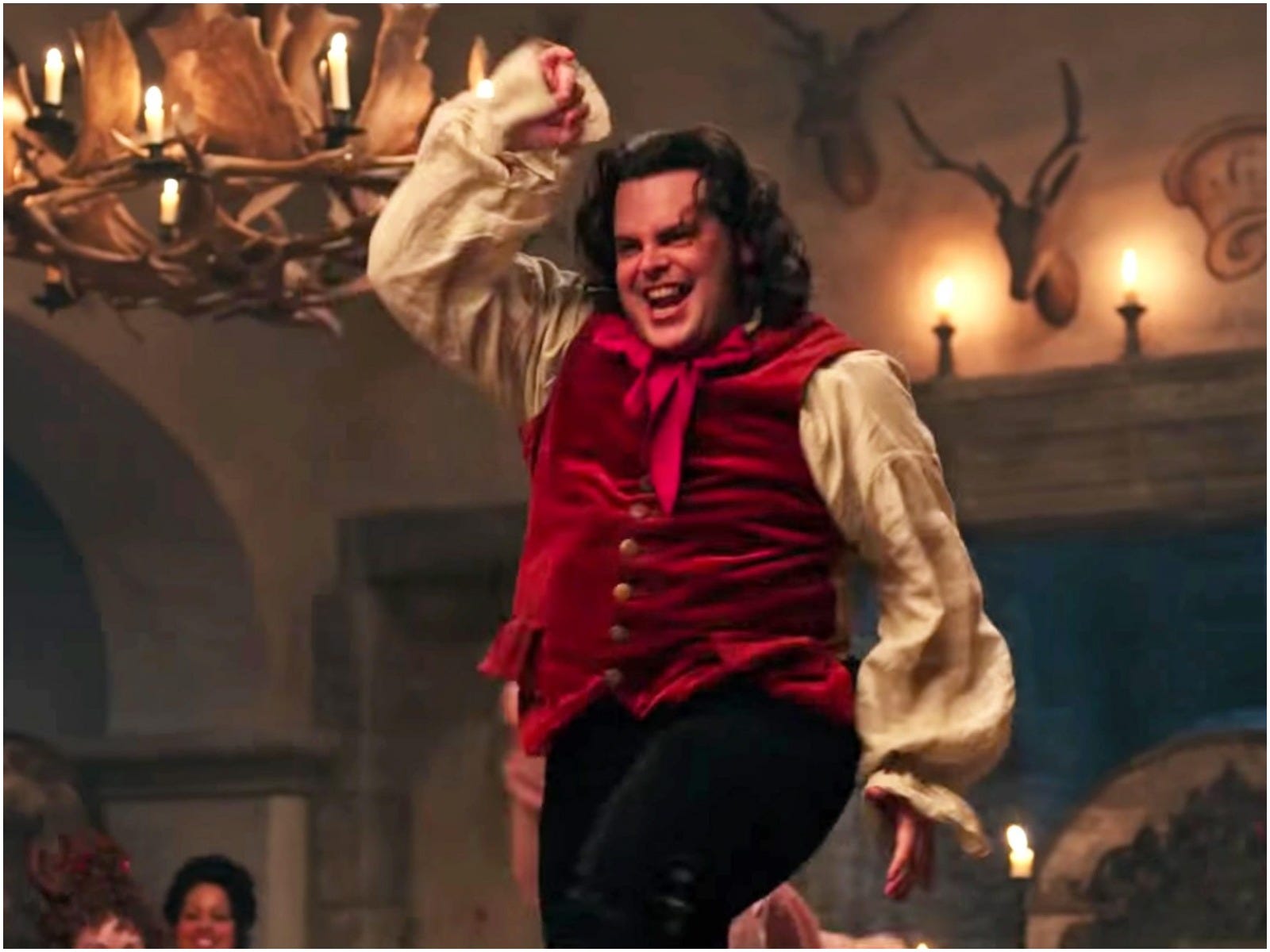
Walt Disney Studios Motion Pictures
Sadly, this continues Disney's trend of shutting out the LGBTQ community.
"Beauty and the Beast" and "Star Wars: The Rise of Skywalker" both featured blink-and-you'll-miss-it "gay moments:" a dance between two men and a kiss between two women.
"It was important to me that people who go to see this movie feel that they're being represented in the film," JJ Abrams told Vanity Fair before "Skywalker's" release.
But these easily-missed scenes don't count as representation. They don't put in any of the time, effort, or thought needed to properly feature LGBTQ stories and characters. What we got instead was forgettable.
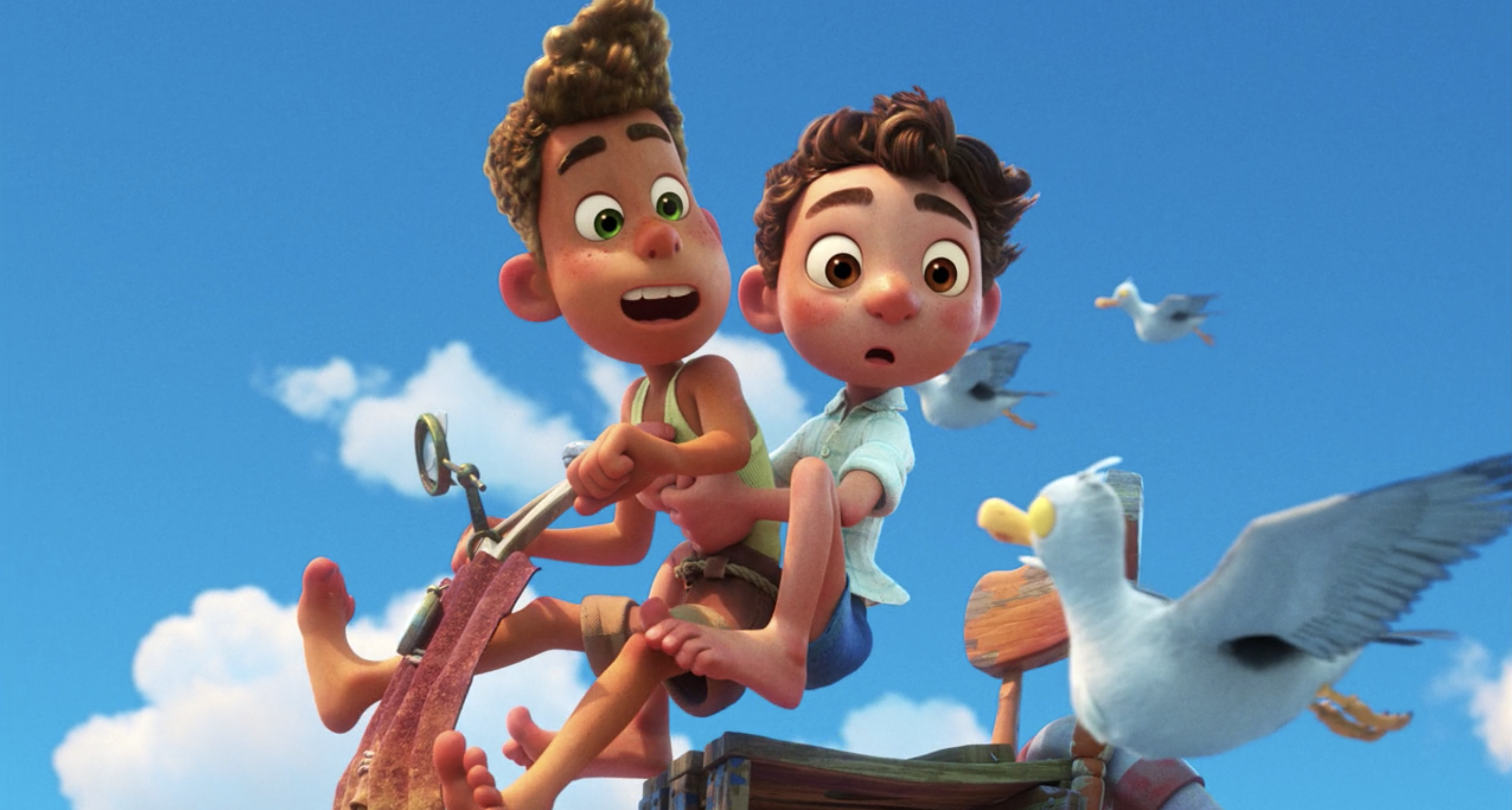
Walt Disney Studios Motion Pictures
The metaphor is still clear and queer youth will benefit
The sea-monster allegory is plain to see: a group of beings are hated by others simply because they're not understood. They're then forced to live in fear of being discovered, pretending to be something they're not.
Luca eventually outs himself in order to save Alberto, and the two stand defiant in front of the townspeople exposing themselves for who they truly are.
What follows next is touching sequences of the townspeople accepting them, culminating in two elderly women outing themselves as sea monsters too.
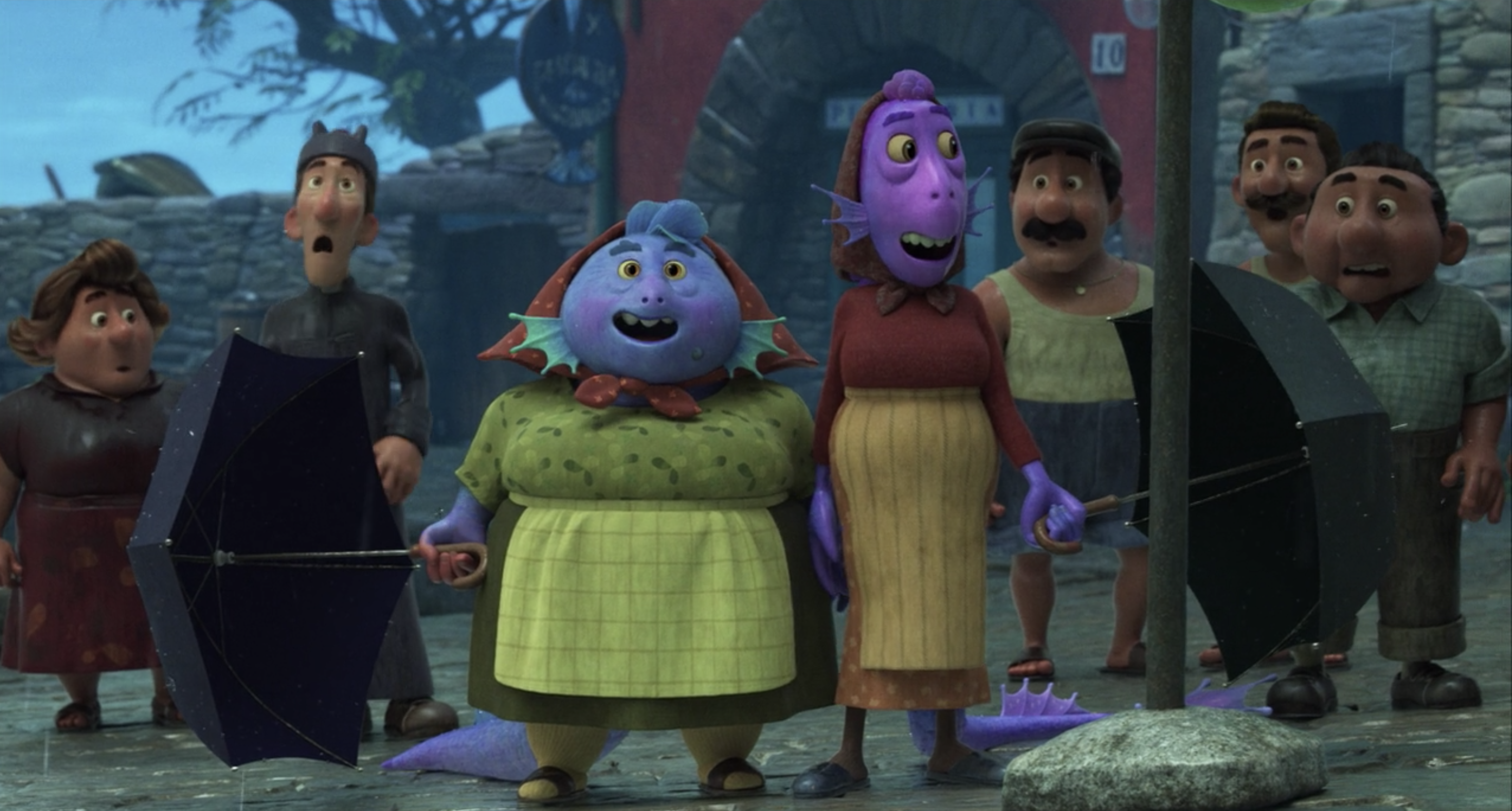
Walt Disney Studios Motion Pictures
No longer do they, or any other sea-monster, have to live in fear. They can live as their authentic selves openly and be accepted without fear of persecution.
It was a really nice moment that made me ugly cry.
"Some people, they'll never accept him," Luca's grandma says. "But some will. And he seems to know how to find the good ones."
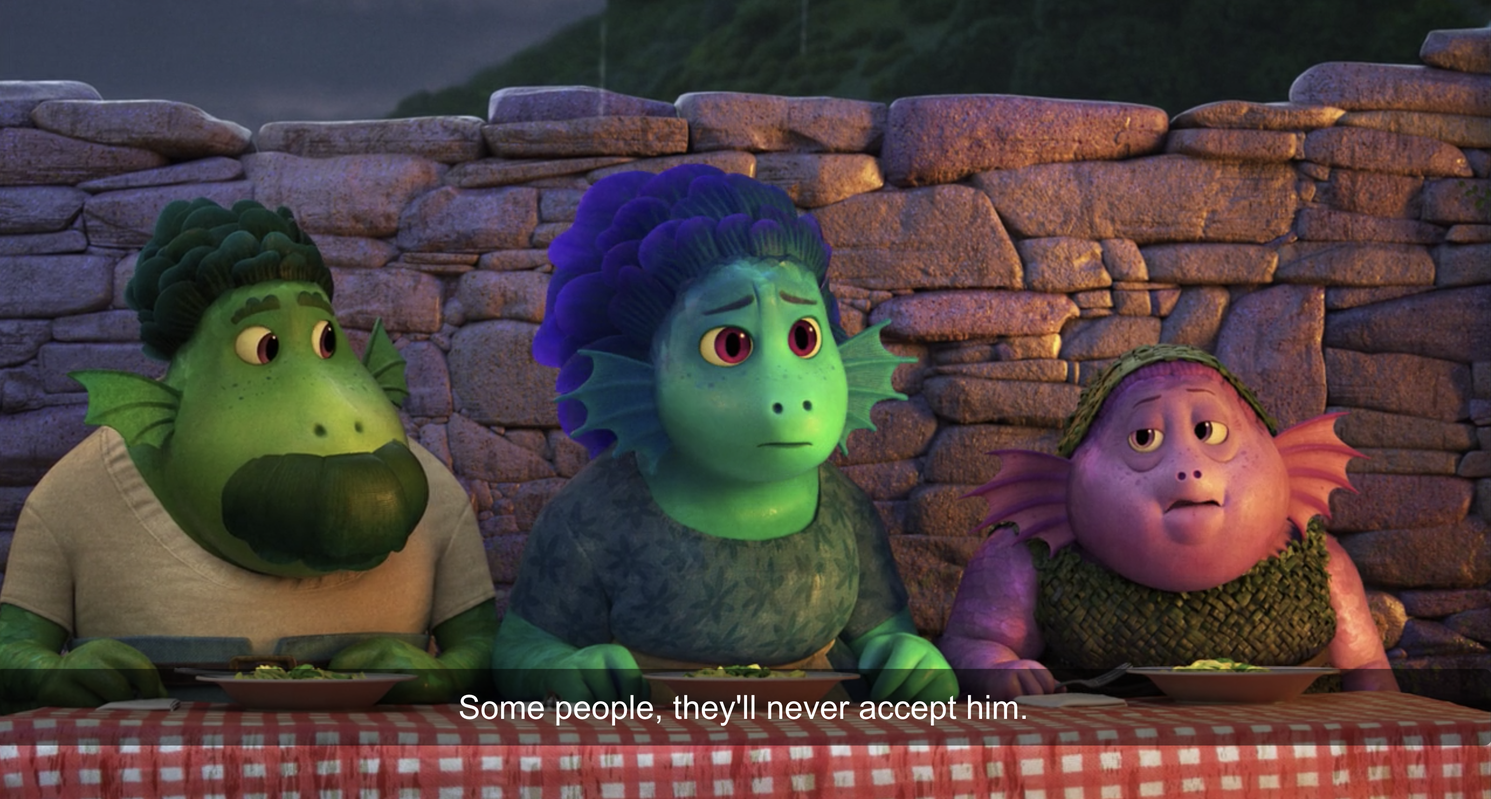
Walt Disney Studios Motion Pictures
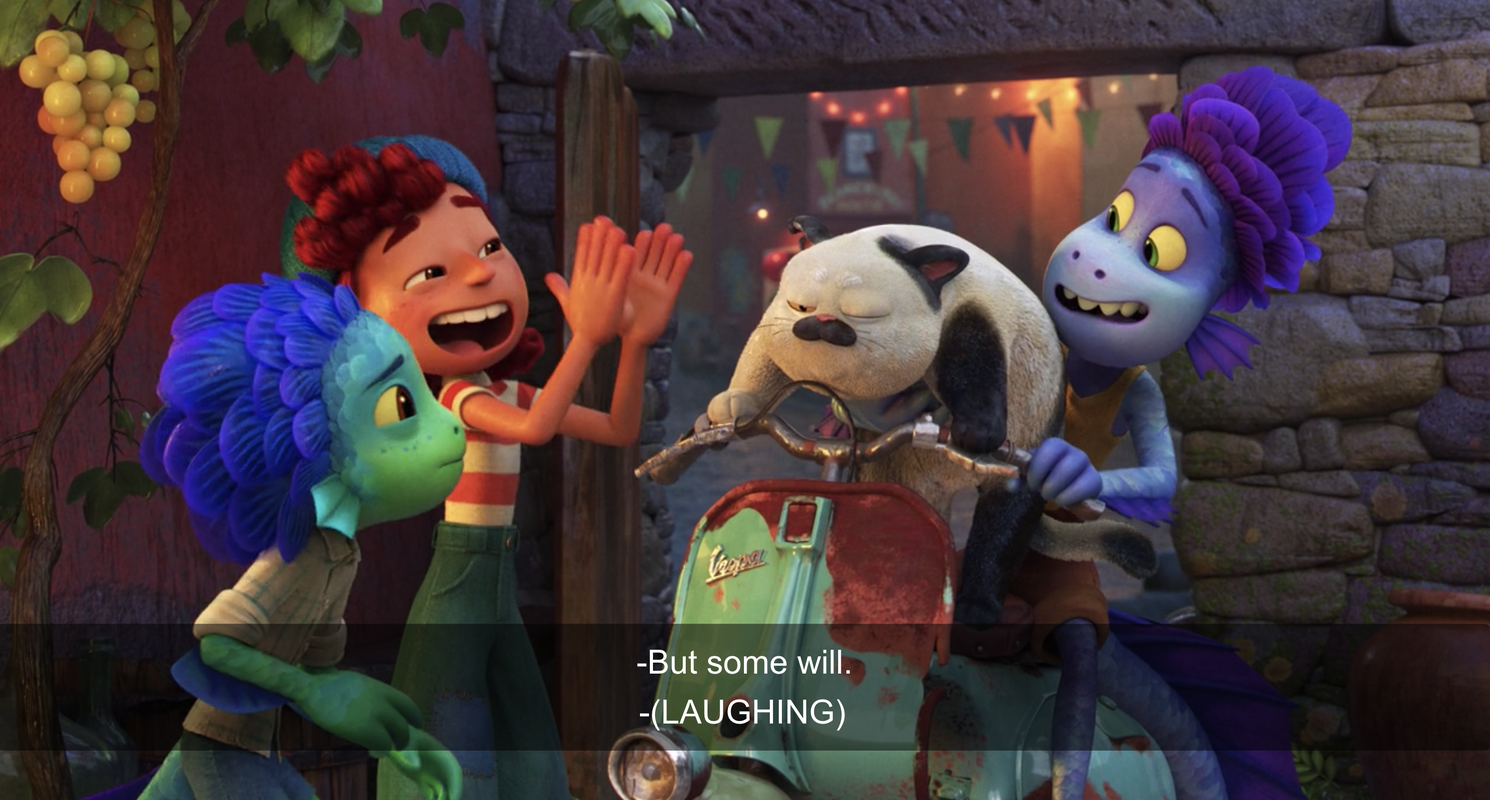
Walt Disney Studios Motion Pictures
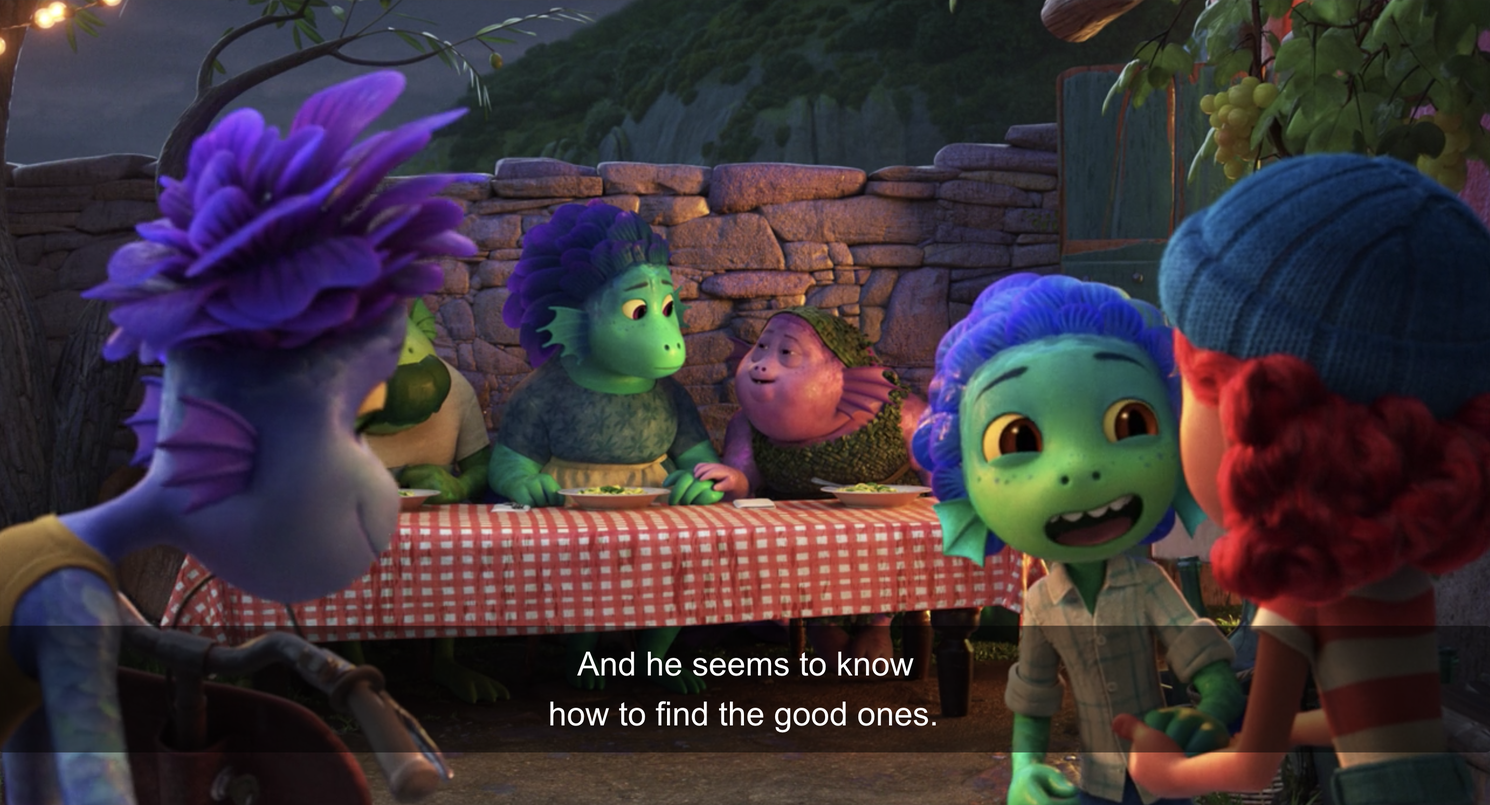
Walt Disney Studios Motion Pictures
Queer kids will still feel comforted by this story because the scene plays out like an allegory for coming out and being gay, even if Casarosa said it isn't.
-young_nova (@young_nova88) June 18, 2021
-ClassicMovieGay (@jblikesmovies) June 19, 2021
What would have made it even more powerful, though, is if the movie explicitly embraced the undeniable queer subtext through dialogue or if the boys shared a kiss when Luca leaves Portorosso.
Some will argue that Pixar made the right call to be more ambiguous so that more people can take different things from the movie, but I feel queer audiences have been robbed of a golden opportunity for tangible representation.
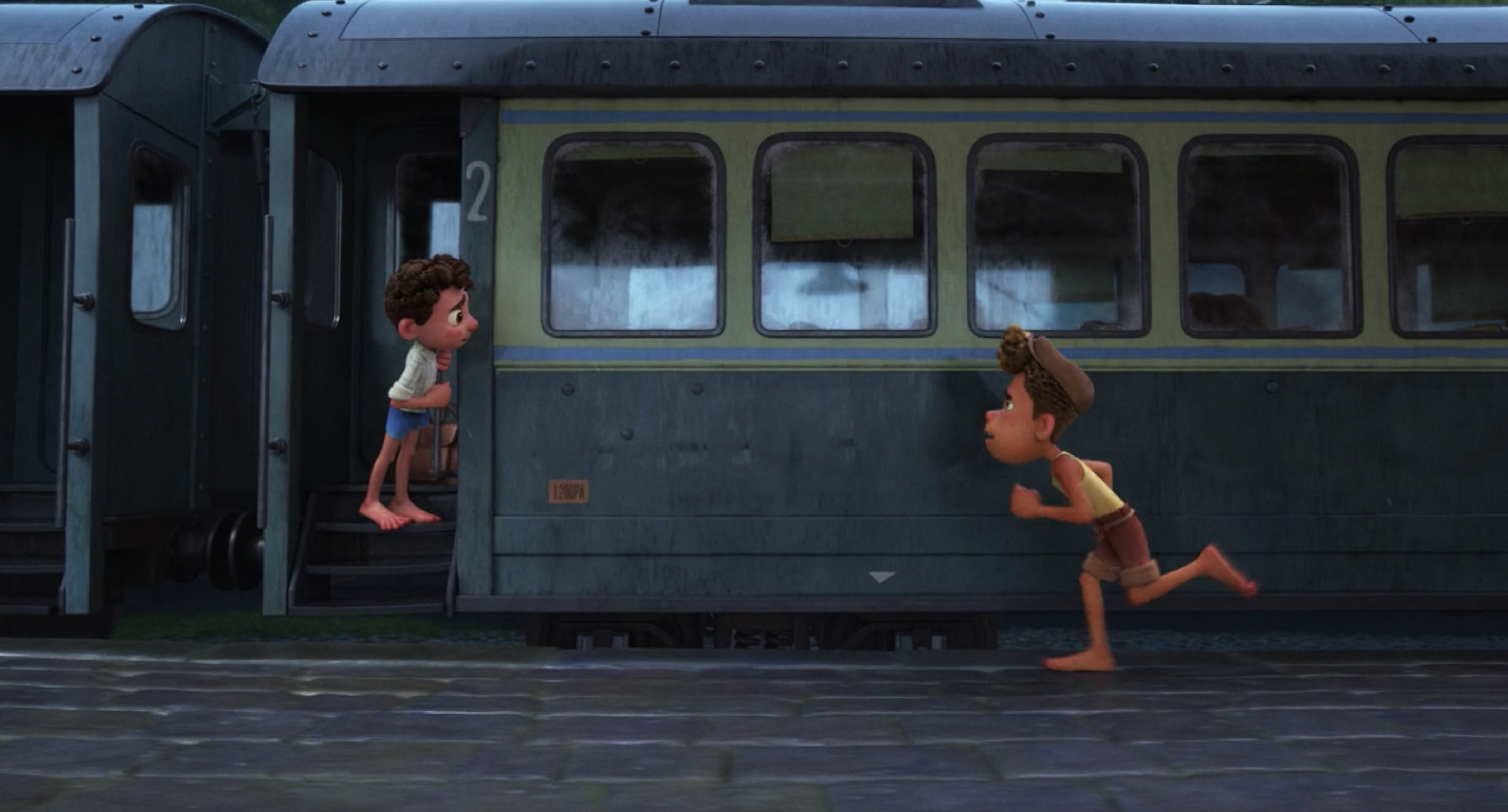
Walt Disney Studios Motion Pictures
"Luca" would've been the natural fit in this tale of two boy for Disney and Pixar to finally give LGBTQ audiences a story for them, depicting their experiences.
Instead, Disney seems happy to let audiences interpret the movie their own way - (almost) satisfying LGBTQ audiences with a movie that feels gay but actually isn't, without being brave enough to present an openly queer story.
